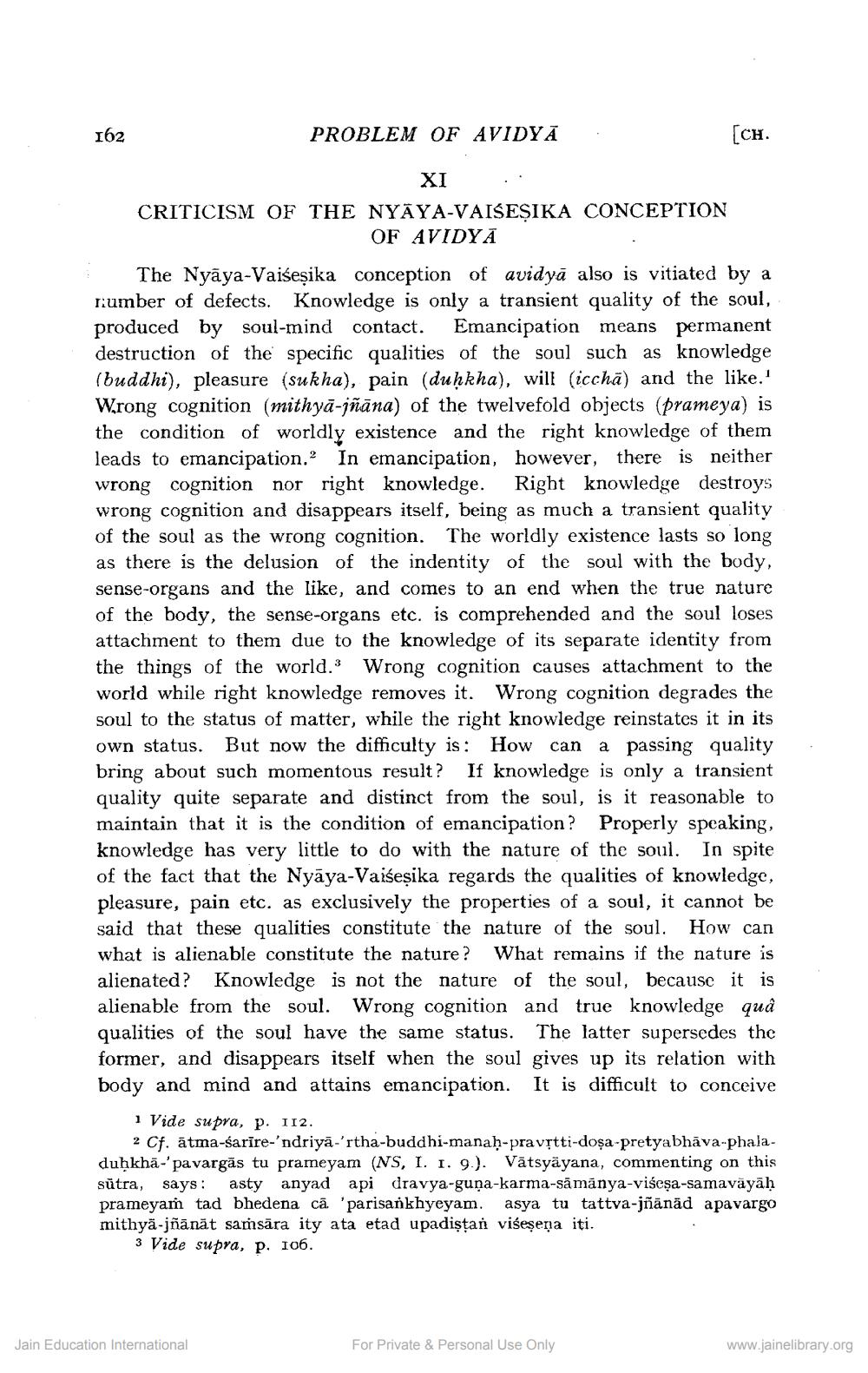________________
162
PROBLEM OF AVIDYA
XI
CRITICISM OF THE NYAYA-VAISESIKA CONCEPTION OF AVIDYA
Jain Education International
The Nyaya-Vaiseṣika conception of avidya also is vitiated by a number of defects. Knowledge is only a transient quality of the soul, produced by soul-mind contact. Emancipation means permanent destruction of the specific qualities of the soul such as knowledge (buddhi), pleasure (sukha), pain (duḥkha), will (iccha) and the like.' Wrong cognition (mithya-jñāna) of the twelvefold objects (prameya) is the condition of worldly existence and the right knowledge of them leads to emancipation. In emancipation, however, there is neither wrong cognition nor right knowledge. Right knowledge destroys wrong cognition and disappears itself, being as much a transient quality of the soul as the wrong cognition. The worldly existence lasts so long as there is the delusion of the indentity of the soul with the body, sense-organs and the like, and comes to an end when the true nature of the body, the sense-organs etc. is comprehended and the soul loses attachment to them due to the knowledge of its separate identity from the things of the world. Wrong cognition causes attachment to the world while right knowledge removes it. Wrong cognition degrades the soul to the status of matter, while the right knowledge reinstates it in its own status. But now the difficulty is: How can a passing quality bring about such momentous result? If knowledge is only a transient quality quite separate and distinct from the soul, is it reasonable to maintain that it is the condition of emancipation? Properly speaking, knowledge has very little to do with the nature of the soul. In spite of the fact that the Nyaya-Vaiseṣika regards the qualities of knowledge, pleasure, pain etc. as exclusively the properties of a soul, it cannot be said that these qualities constitute the nature of the soul. How can what is alienable constitute the nature? What remains if the nature is alienated? Knowledge is not the nature of the soul, because it is alienable from the soul. Wrong cognition and true knowledge quâ qualities of the soul have the same status. The latter supersedes the former, and disappears itself when the soul gives up its relation with body and mind and attains emancipation. It is difficult to conceive
[CH.
1 Vide supra, p. 112.
2 Cf. atma-sarire-'ndriya-'rtha-buddhi-manaḥ-pravṛtti-dosa-pretyabhava-phaladuḥkha-'pavargās tu prameyam (NS, I. 1. 9.). Vatsyayana, commenting on this sutra, says: asty anyad api dravya-guna-karma-samanya-viseṣa-samavāyāḥ prameyam tad bhedena ca 'parisankhyeyam. asya tu tattva-jñānād apavargo mithyä-jñānāt samsara ity ata etad upadiṣṭan viseşena iti.
3 Vide supra, p. 106.
For Private & Personal Use Only
www.jainelibrary.org




